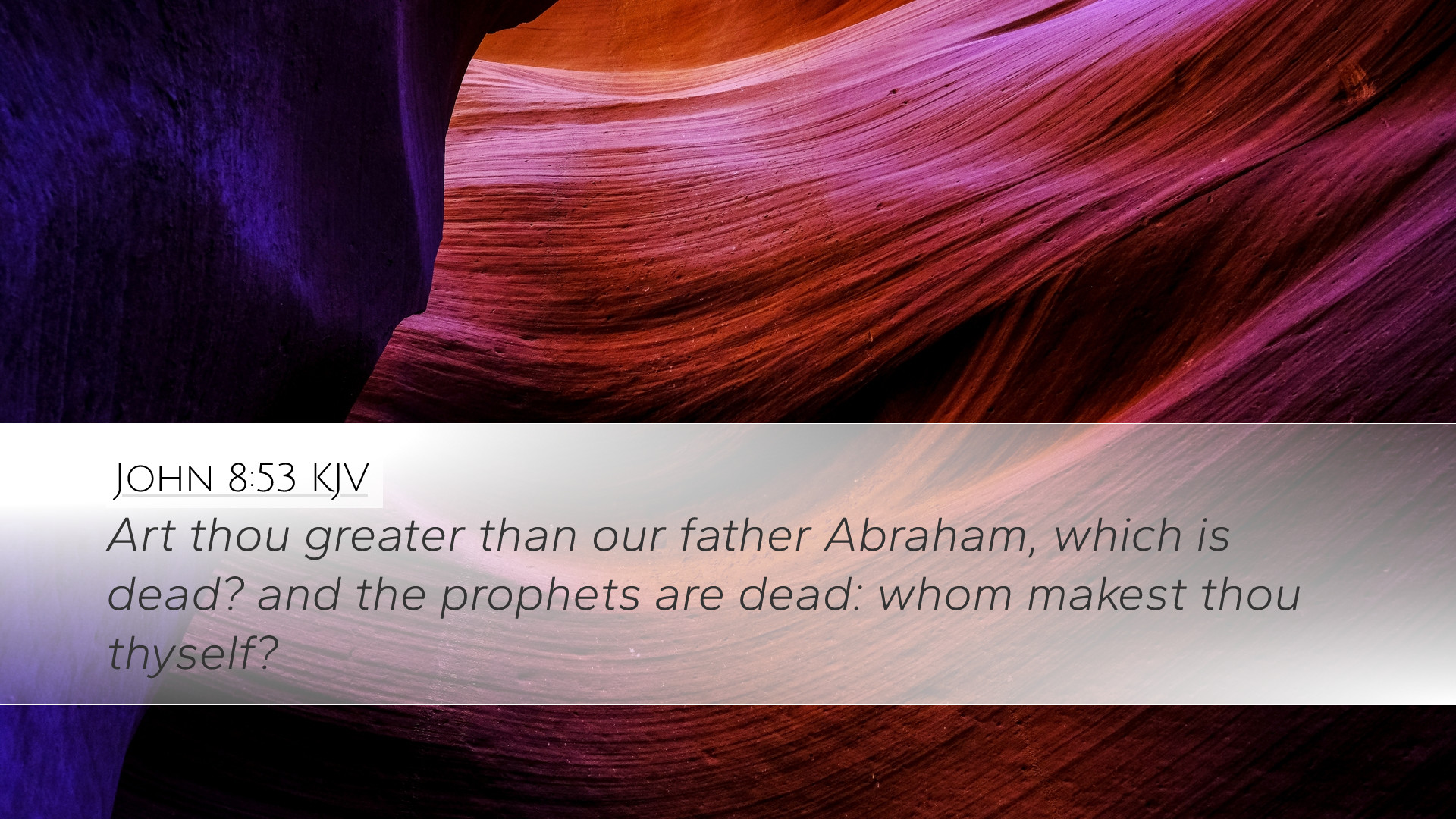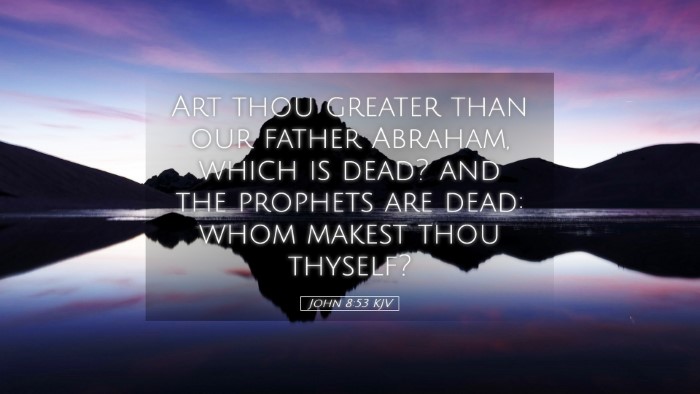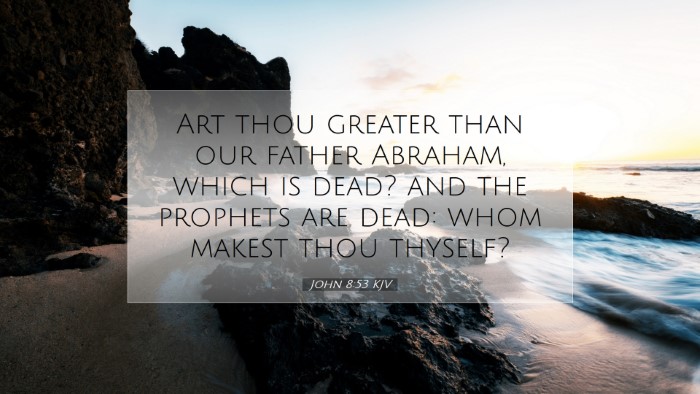Commentary on John 8:53
Verse: "Are you greater than our father Abraham, which is dead? and the prophets are dead: whom makest thou thyself?" (John 8:53, KJV)
Introduction
This verse is part of a broader discourse in the Gospel of John, where Jesus engages in a profound debate with the Jewish leaders regarding His identity and mission. This commentary synthesizes insights from several public domain commentators, providing a comprehensive analysis that is relevant for pastors, students, theologians, and Bible scholars.
Contextual Analysis
The context of John 8 contains a dialogue where Jesus claims to be the light of the world and speaks of His divine origin. The religious leaders challenge His authority and assertions about their father Abraham, thereby setting the stage for a theological confrontation.
Albert Barnes' Insights
Albert Barnes notes the incredulity of the Jewish leaders at Jesus’ claims. They invoke Abraham and the prophets to emphasize their tradition and the authority those figures hold in their understanding of God. Barnes argues that the religious leaders were clinging to their lineage rather than recognizing the new revelation in Christ.
Matthew Henry's Commentary
Matthew Henry provides a rich theological reflection, emphasizing the irony of the Jewish leaders’ question. In citing Abraham, they are referencing a patriarch who looked forward to the coming of Christ, though they stand in opposition to Him. Henry observes that the leaders’ inquiry reveals their failure to see Jesus as the fulfillment of the covenant promises made to Abraham and the prophets.
Adam Clarke's Analysis
Adam Clarke offers a detailed examination of the phrase "whom makest thou thyself?" He interprets this as an accusation of egotism from the leaders, who could not reconcile Jesus’ claims with their understanding of Messiahship. Clarke sees this line of questioning as reflective of their spiritual blindness, noting that despite Jesus performing miraculous signs, they remain obstinate in their disbelief.
Theological Implications
This verse raises significant theological implications regarding identity and authority in religious contexts. The Jewish leaders' reference to Abraham underscores the concept of spiritual lineage and the expectations of prophetic fulfillment in the Messiah. Jesus’ reply, which follows this verse, illustrates His authority as not just a successor to Abraham but as the very embodiment of God’s redemptive plan.
Authority of Christ
- Divine Identity: Jesus asserts His preeminence over patriarchal figures.
- Fulfillment of Prophecy: He embodies the prophecies that Abraham and the prophets foreshadowed.
- Shifting Understanding: The challenge posed to Jesus reveals the necessity of a new paradigm in understanding God’s revelation.
Response of the Jewish Leaders
The response from the leaders is not merely a rhetorical device but illustrates a deeper issue of spiritual discernment. Their failure to recognize Christ echoes throughout the New Testament, where many could not reconcile the incarnation with their preconceived notions of the Messiah.
Practical Applications
For modern readers, especially pastors and theologians, this passage invites reflection on the nature of authority in their own ministries. It challenges leaders to consider how they engage with the legacy of previous spiritual leaders while remaining open to the new work of God through Christ.
Lessons for Ministry
- Legacy vs. Revelation: Balance respect for historical figures with the ongoing revelation of Christ.
- Courage to Challenge Tradition: Embrace Jesus’ authority, which may necessitate challenging established traditions.
- Call to Discernment: Encourage congregations and students to seek spiritual awareness and discernment when they encounter God’s word.
Conclusion
John 8:53 serves as a pivotal moment in the Gospel where the identity of Jesus Christ is brought into sharp focus against the backdrop of Jewish tradition. The reactions of the Jewish leaders underscore a significant theological shift that Jesus was initiating. Pastors, theologians, and students are invited to explore the depths of this confrontation as a means of understanding their faith's foundations and evolving expressions.
In summary, the dialogue in this verse invites an awareness of how deeply-held beliefs can blind us to the truth of God's revelation through Christ—a lesson as relevant today as it was in the first century.


